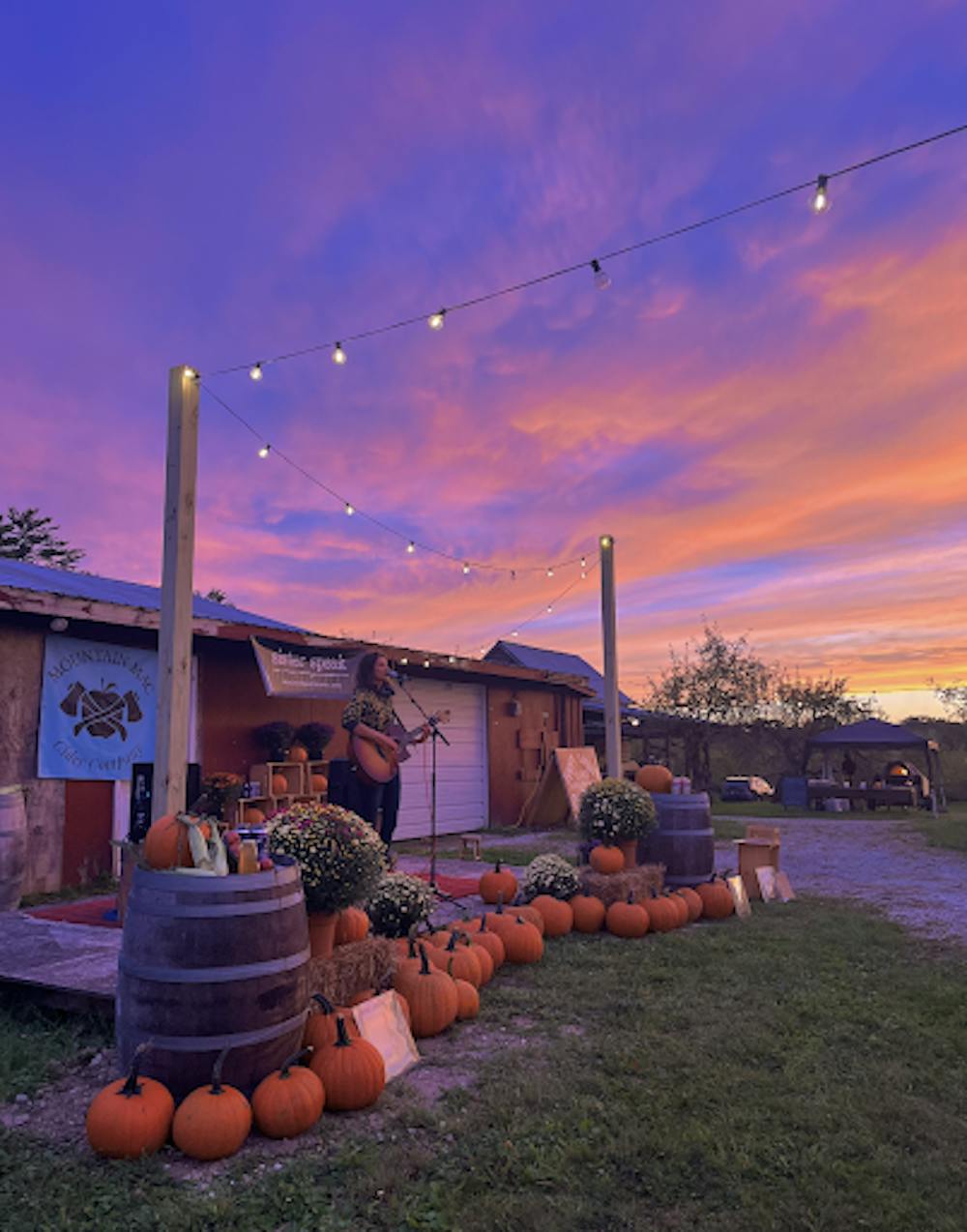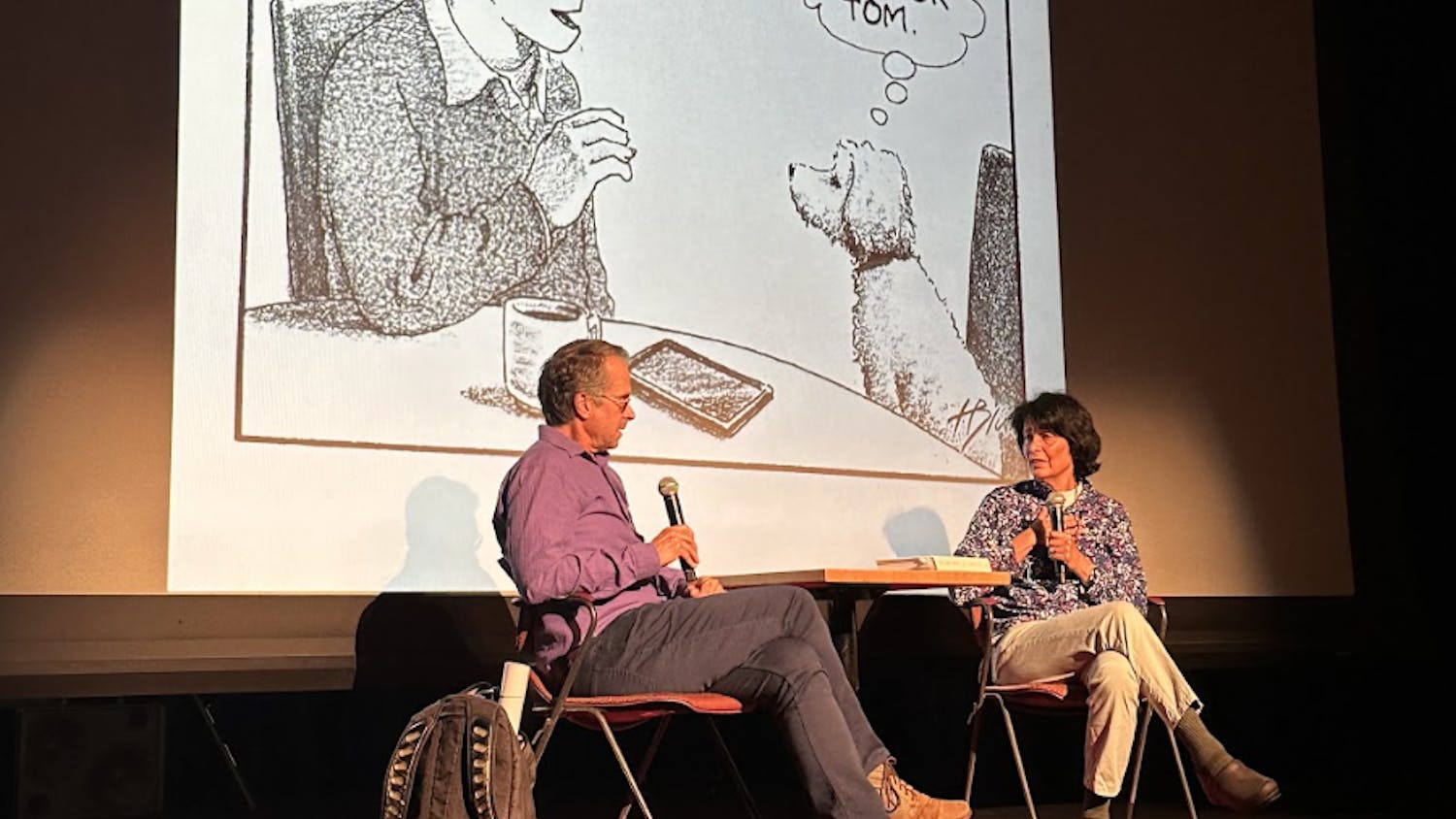Apple picking is a classic New England fall activity, but an abnormally late frost in May of this year robbed many Addison County orchards of much of their apple crop. Faced with the inability to offer the usual pick-your-own-apples services, farms have been forced to find creative new ways to bring visitors to their groves.
“A frost with this severity is something you might see every 50 to 100 years,” said Ben Rule, the director of sales and marketing at Champlain Orchards in Shoreham, Vt.
In the six years he has spent at Champlain Orchards, Rule said he has never seen a frost so devastating.
Champlain Orchards lost all of their cherries, peaches and plums, and 30 to 40 percent of their pear and apple crops. The main factor influencing which crops were affected was the timing of the frost, Rule said. In May, many of the fruit trees had already started to bloom and become pollinated, and some had even started to bear fruit. Those that had already started to bear fruit were more affected than later-season apples. If the frost had occurred a few weeks earlier, before the bloom, it would not have had as much of an impact because the trees would not have been as vulnerable, according to Rule.
Even with the majority of their apples spared, Champlain Orchards is still facing some challenges this fall. A smaller crop yield means less visitation and less business due to fewer pick-your-own-apples opportunities. In an effort to bring people and business in, the orchard has created a Cider Garden and opened a tasting room serving flights, full pours, slushies and local food. Along with these initiatives, every Friday night the orchard is holding a Cider Garden Cinema, showing 90s throwback movies on their lawn.
Rule said another challenge the orchard faces this season is encouraging people to buy the remaining apples in spite of their wrinkled, knobby skins resulting from the frost.
“This fruit is perfect and delicious in every way but aesthetically. It might make the normal consumer cringe and shy away from it,” Rule said.
Because of this aesthetic obstacle, Champlain Orchards is looking for ways to get people to buy these “ugly” apples, and is considering discounts as a way of framing these apples as representative of real-life farming.
Still, however, Rule said that Champlain Orchards feels lucky to have so much of their crop intact, even though they may not be the prettiest apples.
“Lots of orchards were completely wiped out or wiped out in a larger fashion than us. To have at least half of our fruit still be viable is a win,” Rule said.
Happy Valley Orchard in Middlebury did not emerge from the frost quite as lucky, having lost 98% of its yield this spring.
“This year is the worst it’s ever been,” JT Titmus ’23.5, events manager at Happy Valley Orchard told The Campus. Titmus is one of a few full-time workers at the orchard, routinely working 40 hours a week in addition to his classes at Middlebury.
He explained that some apples are affected by frost every year, but the crop usually remains intact. This year’s crop, however, has been almost entirely decimated, Titmus said, putting the orchard at risk of being sold if they are unable to bring in revenue in other ways.
Working with only 2% of their apple crops this year, Happy Valley is allowing visitors to pick their own apples from the healthy crop, assuring them that while the apples may not look perfect, they taste perfectly fine. The orchard is also continuing to make and sell other apple products including donuts, ciders and pies.
While in a typical year Happy Valley makes treats such as donuts and pies with their own apples, this year the orchard used apples imported from southern Vermont orchards that did not experience the detrimental effects of the frost as intensely.
To account for the loss of visitation that apple picking typically brings, Titmus developed a fall concert series to attract people to the orchard. Every weekend through the end of October, Happy Valley is offering free live music and shows put on by local Vermont artists. Titmus said he hopes that these concerts not only help the orchard make it through this season, but also raise awareness of the consequences farmers around the state are experiencing from both the spring frost and the summer floods.
Titmus described Vermont as a community-driven place and emphasized the community’s role in helping the orchards make it through this year. College students, specifically, he said, can play a major role by coming out to the orchard to enjoy the concerts and the cider.
Hazel Traw ’24, said she was disappointed to learn about the lack of apple picking this year, considering it a Vermont fall tradition. Traw has visited Happy Valley multiple times since her first fall at Middlebury..
“Happy Valley is an important local business. It would be a shame to see it sold,” she added.
Traw said she plans to attend a concert at the orchard to show her support for local business, and she hopes that other students will also help out their local orchards this year.




